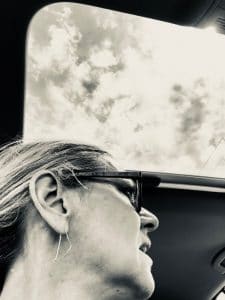
What is Empty Nest Syndrome?
Empty Nest Syndrome is a time in a parent’s life when their children leave home. Kids may venture off to college, get married or fly the coop to start lives on their own. Often parents can feel sad or a sense of loss especially if they have been the primary giver of child care over the last 18 years. The average age of Empty Nesters is about 55 years and it is often a time where there is a sense of loss or depression.
A friend of mine confided that becoming an empty nester has stirred up sadness that her child is grown up. I admitted myself, it’s a validation that we are getting older which is a … shock. Other friends have shared that the Empty Nest has given them a sense of feeling frustrated at realizing they are at a phase in life where they imagined they would have achieved more.
Yikes- Kids Are Grown & Flown- Now What?
Psychology Today recommends getting additional therapy if as an Empty Nester you experience an overwhelming feeling of loss. Other treatments include social support to connect with others going through the same phenomenon. Think about your friends and siblings who would lend an ear and sympathize through their own experience.
How Can Self-Care Help?
Some other strategies can include taking care of one self. That includes re-evaluation of hobbies, career pursuits and wellness activities such as movement, nourish, rejuvenation, passion & purpose. Here are 5 simple ideas for Empty Nester self-care:
- Make plans with friends to go out to dinner
- Make an impromptu date with your significant other
- Hike on the weekends
- Join an art, music or language class
- Rekindle old friendships.
For more information on the 5 Power Habits and over 240 tips on self-care please link to www.havingyourall.com. It’s true, the feelings of loss from Empty Nest Syndrome is real- so be gentle with yourself. Take small steps every day to re-discover and support you!
Ref:
1.Carin Rubenstein, PhD, Beyond the Mommy Years: How to Live Happily Ever After…After the Kids Leave Home (2007).
2. Emma Fogt MBA, MS, RDN & Nisha Shah MPH, RDN, Having Your All- How Self Care Leads to and Energized Effective & Empowered Life (2014).
